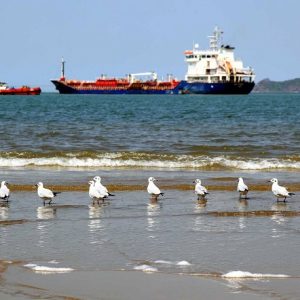Has the Environment Retarded the Development Process



India is set to embark on a new chapter in its Polar exploration journey with the construction of Maitri II. The Indian government plans to establish a new research station near the existing Maitri ba...
.png )
The Deep Ocean Mission (DOM), approved by the Government of India in 2021 under the Ministry of Earth Sciences (MoES), represents a strategic step in realizing Sustainable Development Goal 14 (SDG 14:...

China recently announced restrictions on the export of seven rare earth elements (REEs), soon after US President Donald Trump decided to impose tariffs. As the world's dominant supplier—responsible fo...
<p>Although the development process is fuelled by the extraction of natural resources, environmental conservation and the development process, in particular economic development are frequently in oppo...
<p>Environmental funding in India would do well to heed the cautions of the Economic Survey. India performs among the bottom five countries in the Environmental Protection Index 2018 – a quantificatio...
<p>In 1976 India enacted the Territorial Waters, Continental Shelf, Exclusive Economic Zone and Other Maritime Zones Act, 1976 that followed its incorporation in Article 297 of Chapter III, Part XII o...
NRDMS, ENVIRONMENT, DEVELOPMENT
<p>Ecotourism thus imbibes mainly education and interpretation of responsible tourism practices that in practice ensure environmental conservation, is sustainable tourism and looks after the welfare a...
<p>Although the development process is fuelled by the extraction of natural resources, environmental conservation and the development process, in particular economic development are frequently in opposition to each other.</p>

<p>Environmental funding in India would do well to heed the cautions of the Economic Survey. India performs among the bottom five countries in the Environmental Protection Index 2018 – a quantification of the environmental performance of a state’s policies – published by Yale and Columbia Universities along with the World Economic Forum. Its overall ranking […]</p>

<p>In 1976 India enacted the Territorial Waters, Continental Shelf, Exclusive Economic Zone and Other Maritime Zones Act, 1976 that followed its incorporation in Article 297 of Chapter III, Part XII of the Constitution with the introduction of the concept of the EEZ.</p>
